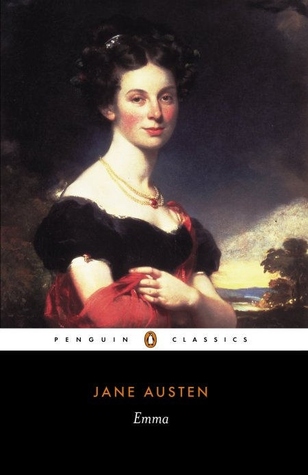One-line summary: Boy meets girl, boy loses girl, boy finds girl again. C'mon, it's
Jane Austen!
 Reviews:Goodreads
Reviews:Goodreads: Average: 4.23. Mode: 5 stars (53%)
Amazon: Average: 4.5. Mode: 5 stars (74%)
"It is a truth universally acknowledged, that a single man in possession of a good fortune must be in want of a wife."
So begins Pride and Prejudice, Jane Austen's witty comedy of manners--one of the most popular novels of all time--that features splendidly civilized sparring between the proud Mr. Darcy and the prejudiced Elizabeth Bennet as they play out their spirited courtship in a series of eighteenth-century drawing-room intrigues. Renowned literary critic and historian George Saintsbury in 1894 declared it the "most perfect, the most characteristic, the most eminently quintessential of its author's works," and Eudora Welty in the twentieth century described it as "irresistible and as nearly flawless as any fiction could be."
When I asked people to
recommend me a classic,
Pride and Prejudice was by far the most recommended choice. (By the way, I actually ended up downloading most of them.)
So I'm probably the last person in the world to read
Pride and Prejudice, right? What am I going to say in a review that hasn't been said already a million times in the last two hundred years? How ever can I make a review of
Pride and Prejudice remotely interesting or new?
Well, I probably can't, but I can sure write a lot when I'm enthusiastic. Below the cut, much text ensues.
( Whereupon the reviewer becomes an Austen fanboy. Readers without a jaded sensibility and an extraordinary tolerance for teal dear are advised to venture no further. )Verdict: Okay, I can understand why Austen's hyper-elegant romcom about 19th century English gentry might put off those who aren't fans of the genre. But once I got used to the style, I loved Austen's finely-crafted prose. It's a work of genius: even if the story is not your cup of tea, you should appreciate how perfectly the plot is constructed and the nuances of characterization.
Austen on Netflix Bonus Feature
So, after reading (listening to, actually) the book, I decided to go back and watch the film version again. Oh, wait -- which one? There are
four versions available on Netflix. (Not counting the
Bollywood version, the
Mormon version, and the
AU fanfic version.)
So, I watched all of them. In a row.
Yes, I know this is
bookish, so skip the cut if you don't want a comparative review of 65 years of
Pride and Prejudice on film.
( A Pride and Prejudice marathon ) 










